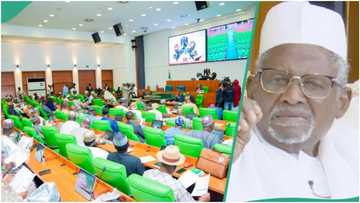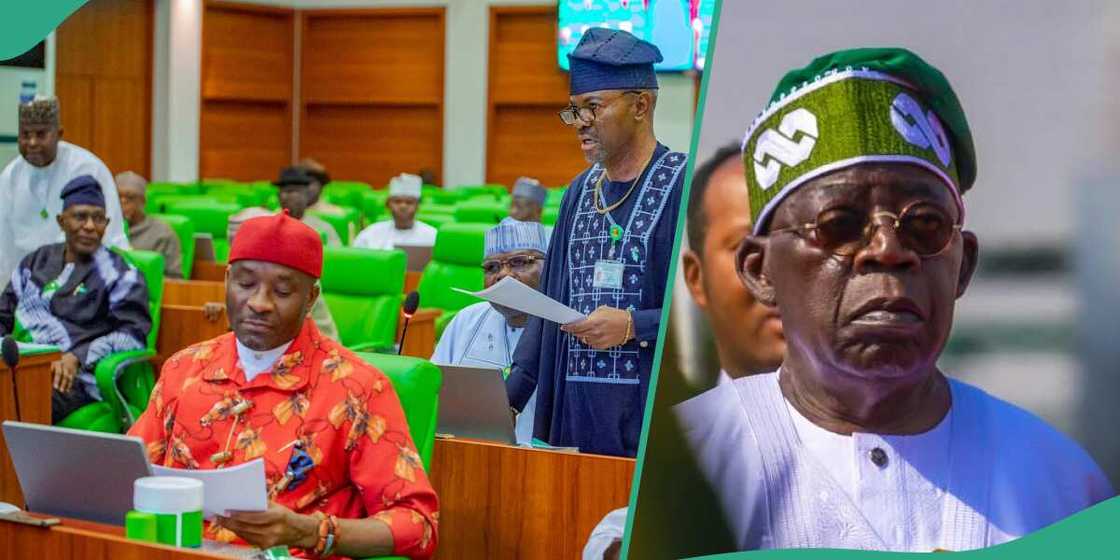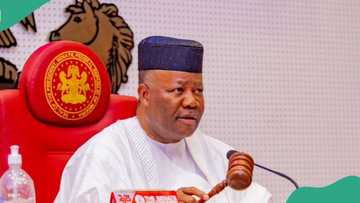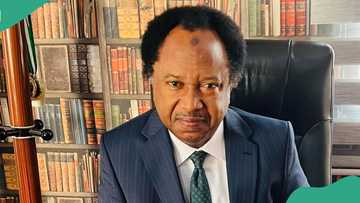Reps Move to Change Presidential System to Parliamentary in Nigeria
- 60 lawmakers have initiated a move to end the current presidential system and revert to the parliamentary system previously adopted in Nigeria’s first republic
- The group introduced a constitution alteration bill on the floor of the house of representatives, setting in motion what could be a transition to a parliamentary system by 2031
- Legit.ng reports that the 60 lawmakers expressed their frustration with the alleged expensive presidential system and 'the overbearing powers' of the president
PAY ATTENTION: The 2024 Business Leaders Awards Present Entrepreneurs that Change Nigeria for the Better. Check out their Stories!
Legit.ng journalist Ridwan Adeola Yusuf has over 9 years of experience covering politics and governance.
FCT, Abuja - 60 members of the house of representatives on Wednesday, February 14, proposed a bill seeking the transformation to a parliamentary system of government from the current presidential system.
The bill is presented for first reading in the legislative chamber.

Read also
BREAKING: Presidential or parliamentary in Nigeria? Kano's respected billionaire Dantata opens up

Source: Facebook
Vanguard newspaper noted this update.
Led by a lawmaker representing Lagos state under the All Progressives Congress (APC), Wale Raji, the lawmakers identified the need for reducing the cost of government, and robust policy debates among others as some of the reasons for demanding a return to the parliamentary system.
The Punch also reported the lawmakers' stance.
What is parliamentary system of government?
A parliamentary system is a democratic form of government in which the party (or a coalition of parties) with the greatest representation in the parliament (legislature) forms the government. Its leader is the prime minister or chancellor.
Executive functions are exercised by members of the parliament appointed by the prime minister to the cabinet. The parties in the minority serve in opposition to the majority and have the duty to challenge it regularly.
Prime ministers may be removed from power whenever they lose the confidence of a majority of the ruling party or of the parliament. The parliamentary system originated in Britain and was adopted in several of its former colonies.
Not first time lawmakers have made demand
In 2018, 71 Nigerian lawmakers demanded a return to the parliamentary system of government.
Addressing journalists at the time at the national assembly, the lawmakers said the parliamentary system of government would help achieve economic growth and development in the country.
The lawmakers said the parliamentary system helps in the quick passage of economic bills due to the fusion of power that it embodies.
Has Nigeria ever practiced parliamentary system?
Nigeria practised the British-styled “Westminster” parliamentary system until the collapse of the First Republic on January 15, 1966, when the military took power.
The 1979 constitution introduced the country to the US-styled presidential system of government, with the framers of the constitution largely citing the tensions and acrimonious politics of the First Republic as reasons.
More to read about presidential system
- Coup d’état in Nigeria? Babangida dispels return of military in govt
- What are the main features of democracy? A comprehensive guide
- Presidential system of government in Nigeria - facts you should know

Read also
BREAKING: Senate unveils 37 member constitution review committee amid ceaseless calls by Nigerians
Nigeria to switch to one-party system, Ayodele
Earlier, Legit.ng reported that Primate Elijah Ayodele, the leader of INRI Evangelical Spiritual Church, prophesied that Nigeria would switch to a one-party system after President Bola Tinubu's first term in office.
According to Primate Ayodele in a video posted on his official Twitter handle, his revelation "is a divine message received by the Lord".
PAY ATTENTION: Stay Informed and follow us on Google News!
Source: Legit.ng



